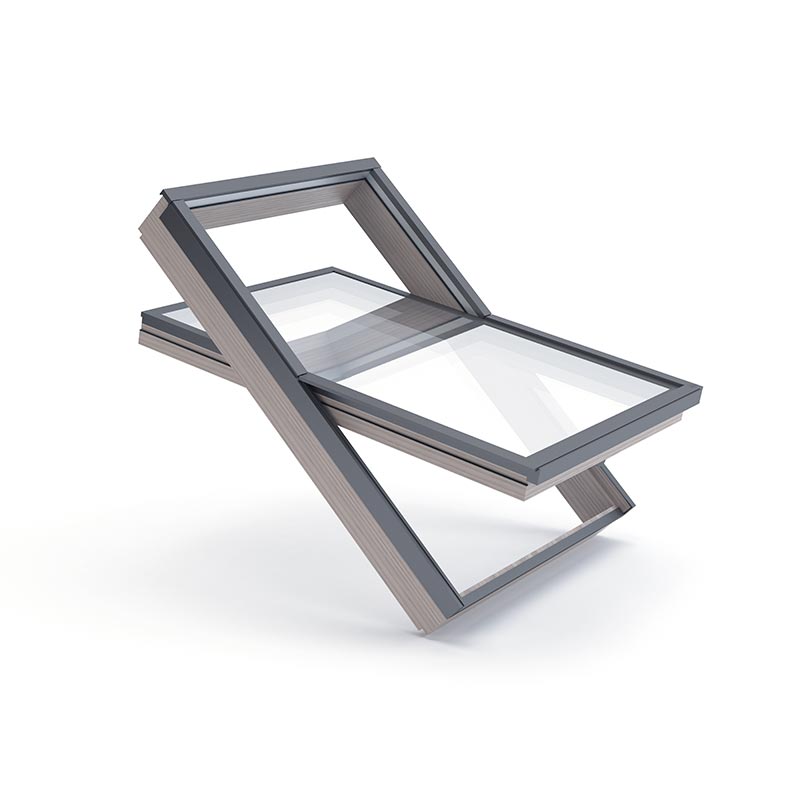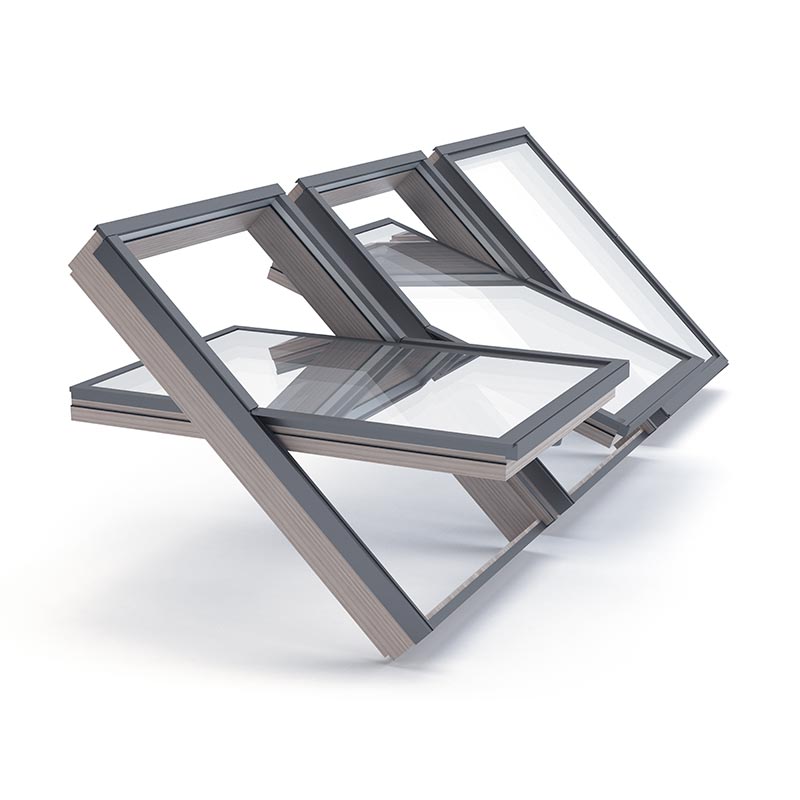Long common in attics and roof windows, pivot windows are enjoying a renaissance among modern homeowners. They offer a sleek, minimalist and eye-catching profile that defines the entire space around them. They are suitable for a range of a uses whether as exterior or interior windows and can be designed to pivot along a horizontal or vertical axis. They are a popular choice among contemporary architects and can be customised to the same level as any standard window including material, glazing, colour and more. Create a unique facade with new pivot windows!
Design and Function
A pivot window is essentially an ordinary casement window with another opening mechanism. Here, the casement - the movable part featuring the glazing - is not side-hung on hinges like a door. Instead, it pivots from the middle either vertically or horizontally from hinges mounted in the centre of the frame. Roof windows also feature the option of a higher pivot point to create more space for standing directly in front of them.
When opened, the catches on the casements are released, allowing it to pivot. This does mean that it is not possible to have a tilt option as is standard with regular casement windows. The advantages of pivoting compared to swinging include:
- Easy opening and closing
- Slim sight lines
- Increased security when opened
- Low space requirements
Pivot windows are not limited to roof windows or even rectangles. Circle and oval pivot windows are a very popular option as well as door sized windows which can be used to enter and leave the home.



